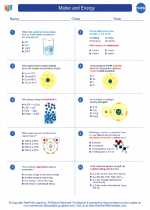Fungus: An Overview
Fungi are a diverse group of organisms that include yeasts, molds, and mushrooms. They are classified as their own kingdom, separate from plants, animals, and bacteria. Fungi play a crucial role in various ecosystems, as they are important decomposers, symbionts, and pathogens. Understanding the biology and chemistry of fungi is important in fields such as medicine, agriculture, and biotechnology.
Fungal Structure and Function
Fungi are eukaryotic organisms, meaning their cells have a nucleus and other membrane-bound organelles. The main body of a fungus is called the mycelium, which consists of a network of thread-like structures called hyphae. Fungi obtain nutrients through absorption, secreting enzymes to break down organic matter in their environment. This ability to decompose complex organic molecules is essential for cycling nutrients in ecosystems.
Reproduction and Life Cycle
Fungi reproduce through the production of spores, which can be dispersed by air, water, or animals. Fungi have diverse reproductive strategies, including sexual and asexual reproduction. The life cycle of a fungus can involve both haploid and diploid stages, and some fungi can undergo alternation of generations.
Ecological and Economic Importance
Fungi have a significant impact on ecosystems and human society. They form mutualistic relationships with plants, such as mycorrhizal associations, which enhance nutrient uptake. Fungi are also used in food production (e.g., baking, brewing), pharmaceuticals (e.g., antibiotics, immunosuppressants), and bioremediation (e.g., cleaning up pollutants).
Medical and Agricultural Relevance
Some fungi are pathogenic to humans, causing diseases such as athlete's foot, ringworm, and systemic infections in immunocompromised individuals. Understanding the biochemistry and life cycle of pathogenic fungi is crucial for developing antifungal drugs and treatments. In agriculture, fungi can be beneficial as biocontrol agents for pests and diseases, or detrimental as crop pathogens.
Study Guide
- Describe the structure of a typical fungal cell.
- Explain the process of fungal reproduction, including both sexual and asexual mechanisms.
- Discuss the ecological roles of fungi in nutrient cycling and symbiotic relationships with other organisms.
- Provide examples of economically important fungi and their applications in industry and medicine.
- Identify common human diseases caused by pathogenic fungi and their treatment options.
- Compare and contrast the benefits and risks of fungi in agriculture.
Understanding the diverse roles and applications of fungi is essential for appreciating their impact on the environment, human health, and industry. Further exploration of fungal biology and biochemistry can lead to advancements in medicine, agriculture, and biotechnology.
.◂Chemistry Worksheets and Study Guides High School. Matter and Energy

 Worksheet/Answer key
Worksheet/Answer key
 Worksheet/Answer key
Worksheet/Answer key
